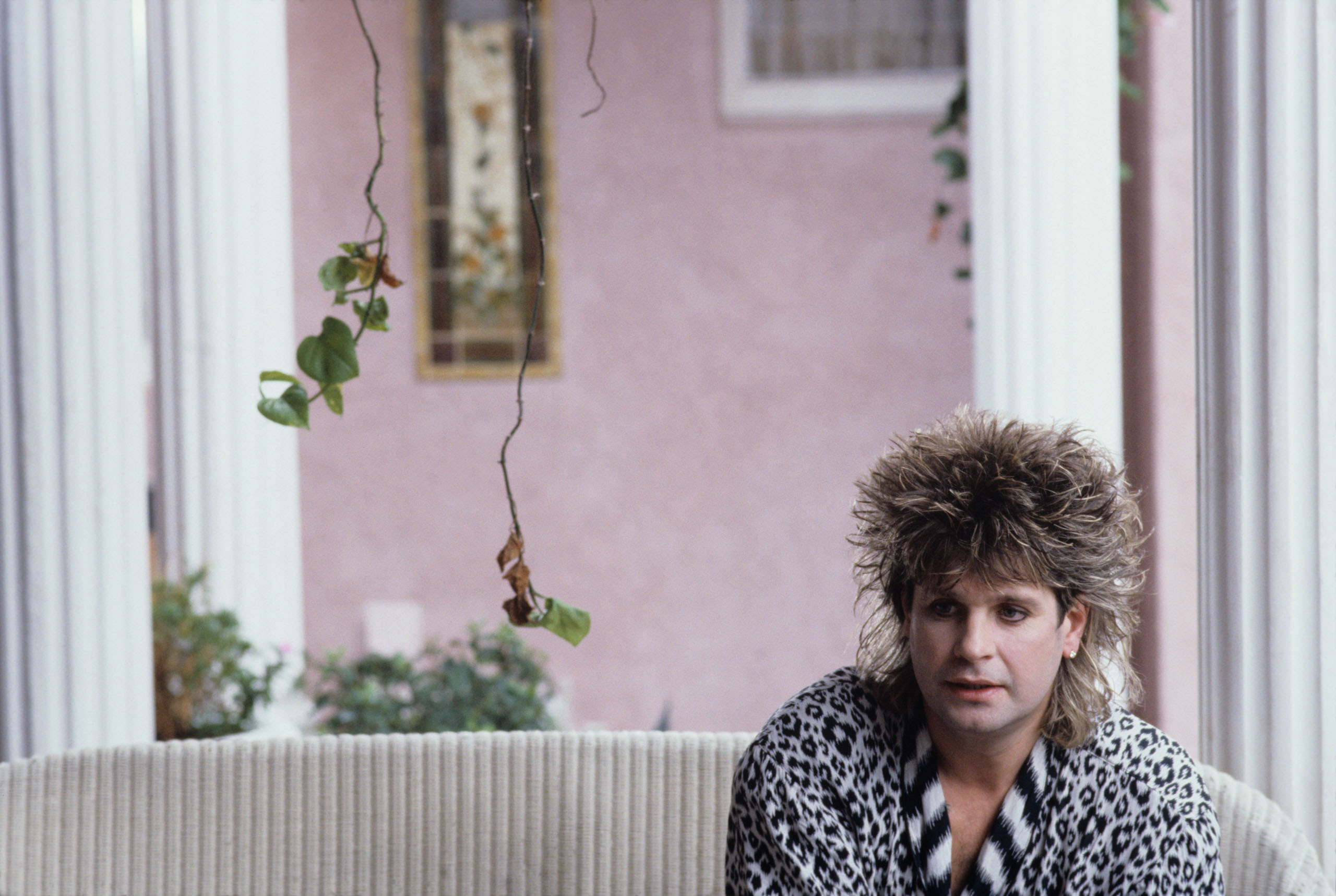Ozzy Osbourne dead at 76? It’s nearly impossible to wrap my mind around it.
After all, it wasn’t even three weeks ago that the self-proclaimed “Prince of Fuckin’ Darkness” was triumphantly fronting Black Sabbath’s farewell appearance at the Back to the Beginning benefit concert in his hometown of Birmingham, England. Sure, he had to remain seated throughout the performance, due to the effects of advanced Parkinson’s disease and a spinal injury he’d suffered in 2019, but he still gave it his all during the legendary British band’s concert-closing four-song set, just as he had on the five-song “solo” set that preceded it. Ozzy’s body may have broken down, but his charisma and life force felt as vibrant as ever. “It’s so good to be on this fucking stage, you have no idea,” he enthused at one point, and it was easy to imagine that the massive outpouring of love from the 45,000 fans in attendance would be just the fuel he needed to keep his engine revving for ages to come.
Onstage, Ozzy couldn’t go more than a song or two without interjecting “We love you!” or “I love you all!” between verses, but it wasn’t the cynical tic of a jaded performer—he sincerely meant every word. Music—and the charge he got from performing in front of an audience—had already saved the man born John Michael Osbourne countless times over. Young Ozzy’s Beatles-fueled pop dreams extricated him from a life of poverty, petty crime, and soul-crushing factory gigs, and put him on the path to becoming an internationally beloved rock icon. “One day we had a fucking bag of French fries in our hands,” he told me in 2013 while discussing the early days of the original Black Sabbath lineup, “and the next day we had champagne!”
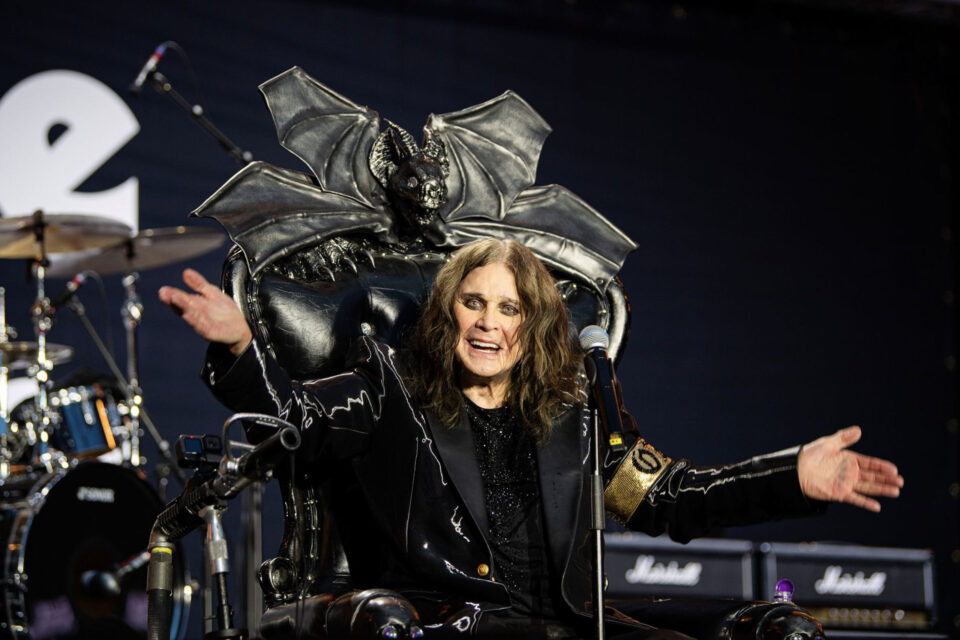
Ozzy Osbourne at Back to the Beginning concert, July 2025 / photo by Ross Halfin
Of course, that same French-fries-to-champagne trajectory also put Ozzy on a path to self-destruction, one he pursued almost as doggedly as his dreams of stardom. But despite his propensity for drinking, popping, or snorting anything placed in front of him (would anyone in 1980 have predicted that Ozzy would live to see 1990?), his almost comical flair for misadventure (like biting the head off a rubber toy bat that turned out to be the real deal), and his oft-repeated threats of retirement, he kept finding ways to bounce back and bask in the mutual love affair he shared with his millions of fans.
Is it miraculous that Ozzy somehow didn’t already die 40, 50 years ago? Sure. But at some point, he’d beaten the odds so many times that you just assumed he’d stick around forever—and now that he’s gone, it feels as jarring and improbable as the Brooklyn Bridge suddenly disappearing from the East River. Because even if you weren’t into metal, if you paid any attention at all to popular music over the last half-century, you knew who Ozzy Osbourne was. Even Bob Dylan knew; there’s a great behind-the-scenes clip from the filming of Richard Marquand’s 1987 film Hearts of Fire of Dylan talking to some kids about the metal bands they’re into, and you can see him light up when one of them mentions Ozzy. “Oh yeah, you like Ozzy?” he says, his voice warming with the obvious affection of one veteran song n’ dance man for another.
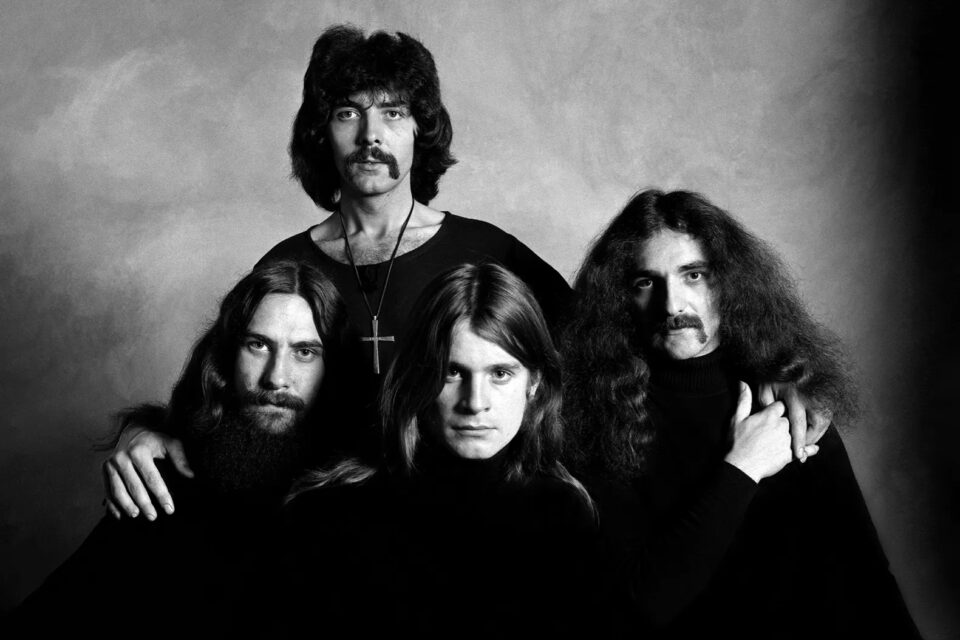
Black Sabbath / Duffy Archive / Courtesy Rhino Recortds
Ozzy transcended heavy metal, but of course he was also an integral part of its birth and its history. From 1968 to 1978, he was the wild-card frontman of the dark and mysterious Black Sabbath—a band who, though now rightly lauded for crafting the earth-quaking template followed by countless metal and hard rock practitioners, were widely reviled in their heyday by critics and snobby music fans alike. As someone who attended junior high school in the late ’70s, I can attest that it was decidedly uncool to be a Black Sabbath fan; no one would bat an eye in those days if you wore a Led Zeppelin T-shirt to school, but wearing a Sabbath shirt marked you as an outcast, dirtbag, and quite possibly a glue-sniffer. (One day in math class, a kid with long, greasy hair and both arms in plaster casts emblazoned with hand-painted Black Sabbath logos informed me in a stoned monotone that “Ozzy Osbourne is a fourth-level Satanic priest who does acid before every show!” I believed him; I also immediately grabbed my things and moved to an empty desk on the other side of the classroom.)
What the critics and snobs missed at the time was that Sabbath’s rough-hewn, hard-grooving music was the sound of post-WWII industrial alienation, and that much of their lyrics expressed a genuine concern for the fate of mankind in an age of endless wars and rampant nuclear proliferation. And while bassist Geezer Butler wrote most of Sabbath’s lyrics—none of which, despite the band’s “Satanic” rep, actually promoted Satanism—it was Ozzy who really sold them; with his unschooled yelp, he came across in songs like “War Pigs,” “Children of the Grave,” and “Paranoid” like an average working-class oaf struggling to make sense of the horrors of the world and the confusion in his head. If he also sang the occasional love song to marijuana like “Sweet Leaf,” well, who wouldn’t want to get high with all that kind of shit going on?
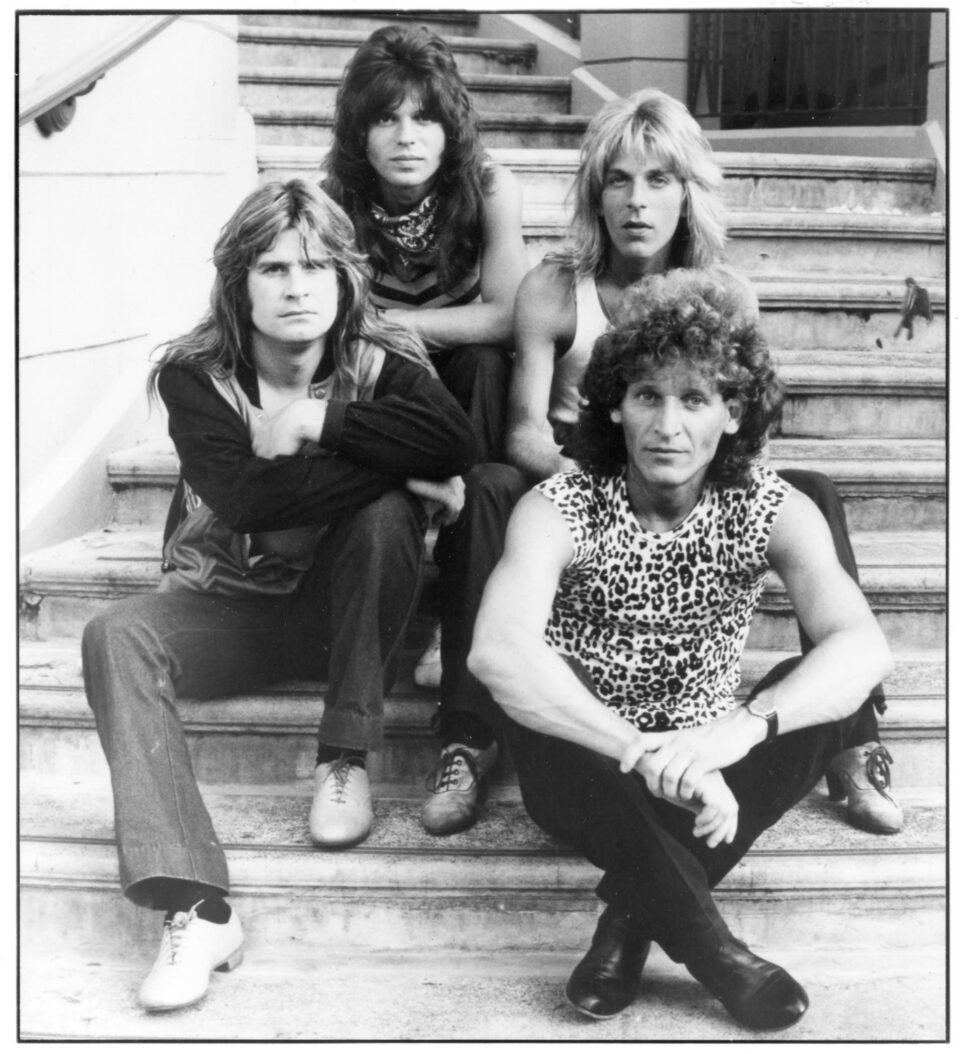
Black Sabbath / photo by Ross Halfin
In the 1980s, Ozzy was the manic madman who’d been literally and figuratively plucked from the gutter by manager and future wife Sharon Arden, and whose unlikely post-Sabbath “Crazy Train” comeback left his former bandmates in the dust. His unhinged antics and lyrical forays into the macabre caused self-appointed guardians of the public morality to clutch tightly at their pearls, which of course only heightened his countercultural credibility. Ozzy enjoyed playing up his demonic image on album covers and in videos, but he also memorably spoofed the furor over the supposed evils of heavy metal by playing a televangelist in the 1986 horror film Trick or Treat. And then, of course, there was the hilarious scene in Penelope Spheeris’ 1988 documentary The Decline of Western Civilization Part II: The Metal Years where a heavily moused and eyelinered Ozzy attempts to make himself breakfast while being interviewed—with memorably messy results.
Along with Lemmy and Alice Cooper, Ozzy was one of the few elder-statesmen types in Decline II, and it was a role he fully embraced during the 1990s. By then, it wasn’t only young metal bands who looked up to him—the grungier side of the alternative rock movement also turned out to be heavily into Sabbath worship. But when Lollapalooza wouldn’t make room for her husband in their festival lineup, Sharon Osbourne launched Ozzfest, which between 1996 and 2018 featured Ozzy as a somewhat bemused figurehead. “On the Ozzfest,” he told me during one of our many interviews together, “there were so many times where one of the bands would come up and say, ‘Oh, we’re not worthy! Black Sabbath was our biggest influence!’ And I’d listen to them play, and I’d go, ‘What? What the fuck were they smoking when they thought they sounded like Black Sabbath?’ All that growling shit!”
Among Ozzy’s many contradictions was the fact that, despite being arguably the biggest metal solo artist in the world, he far preferred listening to The Beatles than anything hard and heavy. “We come from the end of the ’60s and the beginning of the ’70s—The Beatles, and all that,” he told me while discussing Sabbath’s musical origins. “The one thing about The Beatles was that they always had the best fucking melody lines.”
And while Ozzy unquestionably had a knack for plucking brilliant metal guitarists out of obscurity, he was also always chasing the melodic example that his heroes had set. The first time I met Ozzy was during the mixing of his 2001 album Down to Earth, and he was so excited about his new song “Dreamer” that he insisted we put our interview on pause and head into the studio to hear it. He pulled out a chair for me in front of the mixing desk, then stood behind me with his hands gripping my shoulders. “We won’t let this one get away,” he chuckled evilly, before instructing Tim Palmer, his producer, to crank the playback volume high. My mind already quite blown by the sight of his “Ozzy”-tattooed knuckles resting inches from my chin, I braced myself for what I was sure would be a metallic onslaught, only to be completely caught off guard by a lovely, piano-based ballad that bore more than a slight trace of John Lennon. “It’s like ‘Ozzy’s “Imagine,”’” he said quietly as the song finished—a remark which came off not as a boast, but rather a humble expression of wonder that he, the Prince of Fuckin’ Darkness himself, could have been part of something so pleasingly melodious.
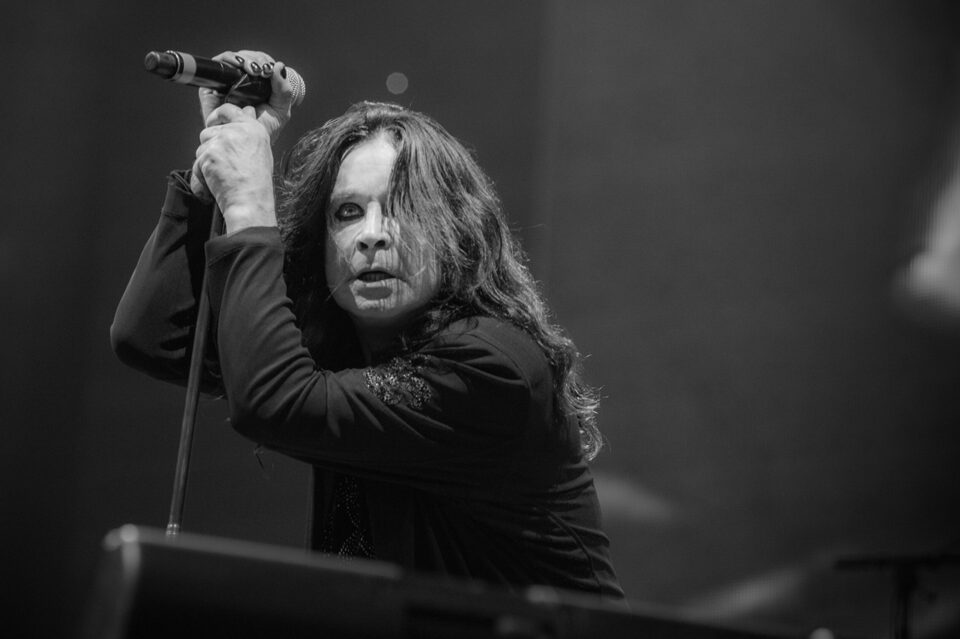
photo by Timothy Hiatt
For many of us longtime Ozzy fans, watching The Osbournes—the MTV reality series that ran from 2002 to 2005—was a frustrating experience. Instead of the wild-eyed madman of yore, Ozzy came across on the small screen as a bumbling, semi-coherent paterfamilias. This impression was further heightened by his infamous 2003 guest appearance at Wrigley Field, where (having only been introduced to the song a few hours before game time), he delivered a trainwreck version of “Take Me Out to the Ballgame” during the seventh inning stretch of a Cubs-Dodgers contest. It was sad to see our hero reduced to a joke, or at least one that he didn’t seem to be entirely in on; at the same time, it was a testament to Ozzy’s inherent charm that such face-palming moments only seemed to make people love him even more.
And why not? Ozzy Osbourne was not only a true character, but also someone completely devoid of pretension or guile. I must have interviewed him over a dozen times between 2001 and 2018, and one of the things I always loved about our chats was that Ozzy was never anything less than straightforward about what was on his mind at the time; he was a lot like the late Beach Boys leader Brian Wilson in that regard. The few times I visited him at his home in Beverly Hills, he made it quite clear that he’d be more than happy to spend all of his offstage time in his crucifix-studded den, snuggling with his dogs and watching World War II documentaries on the History Channel. But, alas, he had a job to do…
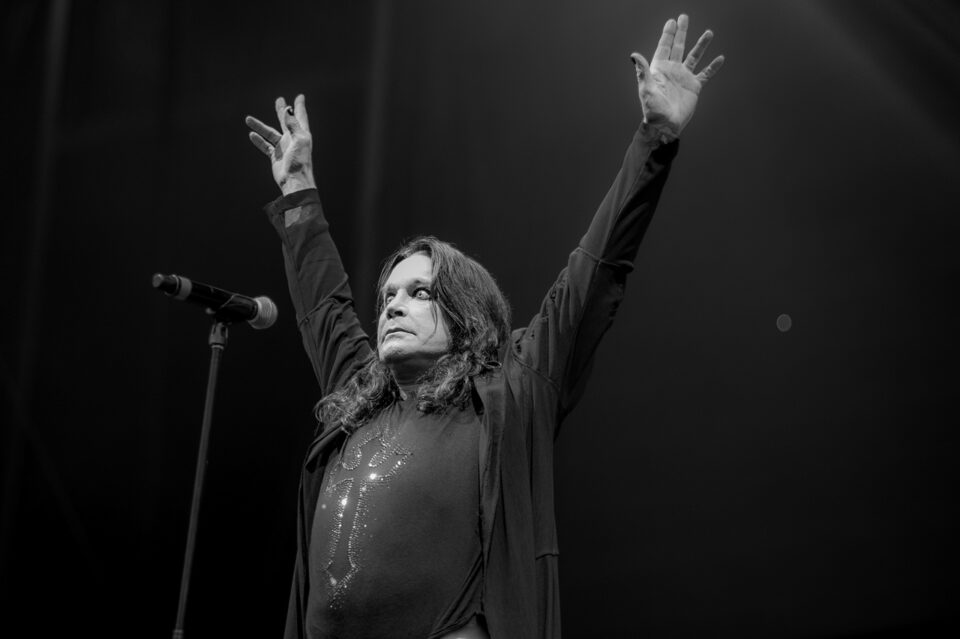
The last time I encountered Ozzy in person was in 2013, when I interviewed him and Geezer about the making of 13, Black Sabbath’s final studio album. Geezer was relaxed and affable, but Ozzy—who would later reveal that he had fallen off the wagon again during this period—seemed agitated and distracted, only really coming to life when the term “heavy metal” came up. “We never started out as a heavy metal band,” he groused. “There wasn’t such a thing called heavy metal. It was hard rock, which had more of a musical connotation than heavy fucking metal. From Poison to Motörhead to Black Sabbath, we’re all called heavy metal, and it’s bullshit!”
About 10 minutes before the end of our allotted interview time, and right in the middle of discussing the album’s record company-imposed title—something that neither he nor Geezer were fans of—Ozzy suddenly stood up. “I’ve gotta take a huge fucking piss,” he announced. “Are we done?”
Well, what could one possibly say to that? Before I could even answer, Ozzy was shuffling off to find the nearest restroom, leaving me sitting there open-mouthed and Geezer laughing hysterically. Crazy—but that’s how it goes. God bless ya, Ozzy; we’ll never forget you. FL

